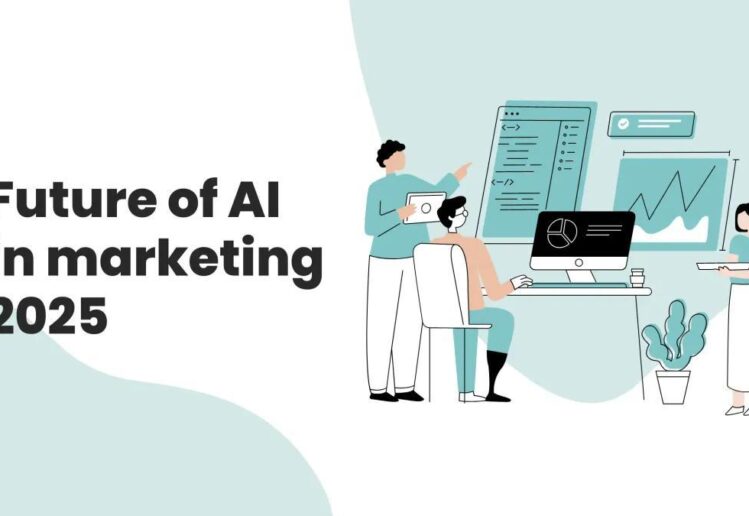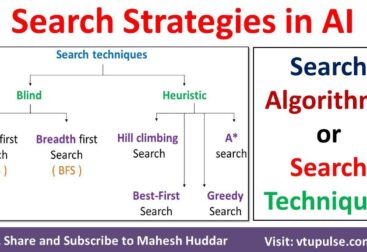AI transformation in marketing is reshaping the landscape for marketing professionals, as nearly 69% of marketing job skills are expected to undergo significant changes due to generative AI, according to a recent analysis by Indeed. This surge in artificial intelligence is leading to automation in various tasks, allowing marketing experts to focus on more strategic roles. With AI in marketing evolving rapidly, the implications extend beyond mere job displacement to a profound redefinition of marketing job skills. As AI takes over routine processes, it raises critical questions about the future roles and responsibilities of marketing professionals. Understanding the impact of AI on jobs not only highlights the challenges but also opens up avenues for enhanced skills in this era of digital transformation.
The evolution of artificial intelligence is not just about automation; it signifies a major overhaul in how marketing functions. As generative AI tools rise to prominence, the need for a fresh set of capabilities among marketing professionals becomes paramount. The infusion of AI in this field suggests a pivotal shift from traditional methods to innovative strategies that leverage technology for enhanced communication and engagement. By embracing these advancements, marketing specialists can redefine their roles in a way that positions them at the forefront of this transformation. In this dynamic environment, adapting to AI-driven changes will be crucial for success and relevance in the marketing arena.
The Role of Generative AI in Marketing Transformation
In recent times, generative AI has emerged as a powerful catalyst for change within the marketing sector. As marketing professionals navigate the evolving landscape, the integration of AI technologies is significantly altering not just how campaigns are conceptualized and executed, but also the very skill sets required in the industry. With 69% of marketing job skills at risk for transformation due to generative AI, professionals must now consider how to innovate their approaches to leverage these tools effectively. The pace at which generative AI can analyze and generate content is reshaping traditional marketing strategies, allowing for more personalized and targeted outreach that resonates with consumers on a deeper level.
Moreover, as generative AI begins to handle routine tasks such as content creation and data analysis, marketing professionals are shifting their focus from execution to strategy and oversight. This transition highlights the growing need for skills that complement AI capabilities, emphasizing not only creative problem-solving but also the ability to interpret and validate AI-generated insights. To remain competitive, marketers must invest in developing these essential skills that will enable them to work alongside AI, ensuring that human judgment and creativity continue to play a paramount role in marketing strategies.
Marketing Job Skills Under AI Threat
Within the marketing profession, specific job skills are facing unprecedented disruption due to AI advancements. Tasks that were once deemed the cornerstone of marketing operations, such as data processing, content drafting, and administrative functions, show a significant propensity for transformation. AI is especially proficient in performing information retrieval and analytical tasks, signaling a move towards increased automation in these areas. For marketing professionals, this means that traditional roles must evolve to incorporate a level of fluency in AI tools as a core competency.
However, while many skills are susceptible to AI influence, not every aspect of marketing is at risk of full automation. Skills related to strategic thinking, brand storytelling, and human-centric communication still demand personal insights and the nuances that AI cannot replicate. This conundrum presents a unique opportunity for professionals—that of striking a balance between leveraging AI for efficiency while still providing the creative and empathetic aspects that are inherently human. Thus, marketing professionals must actively engage in reskilling initiatives to prepare for this dynamic landscape, fostering skills that can coexist with generative AI.
AI Impact on Marketing Careers
The impact of AI on marketing jobs is profound and multifaceted. With a considerable share of marketing skills identified as candidates for transformation through generative AI, professionals in the field face the challenge of adapting to new roles and responsibilities. AI’s capacity to manage repetitive tasks allows marketers to redirect their focus towards higher-order thinking and strategy formulation, fundamentally altering the career trajectories of those in the field. As tasks evolve, so too must the competencies of marketing professionals, prompting the reevaluation of educational programs and training to include AI literacy as a fundamental component.
Additionally, this transformation in job roles has broader implications for the employment landscape in marketing. The need for marketing professionals to embrace AI tools is more pressing than ever, as those who resist may find themselves at a disadvantage in a competitive job market. Companies are likely to seek individuals who demonstrate a keen understanding of how to utilize AI technologies effectively to drive business outcomes. Thus, fostering an adaptive mindset and continuous learning will be instrumental for marketing professionals aiming to thrive in this AI-driven era.
Navigating the Skill Transformation Index
The GenAI Skill Transformation Index provides a crucial framework for understanding the shifts occurring within job skills in marketing due to AI. By categorizing skills into minimal, assisted, hybrid, and fully transformed levels, marketing professionals can gain insights into where their strengths lie and where they need to adapt. The Index reveals that most of the skills in marketing fall into the hybrid category, indicating a need for human oversight even as AI takes over routine tasks. This underscores the importance of developing a comprehensive skill set that includes the ability to supervise AI tools, ensuring they align with business goals and ethical standards.
Understanding the framework provided by the Skill Transformation Index empowers marketing professionals to prioritize their learning and development efforts. By focusing on skills that enhance oversight and strategic direction, marketers can position themselves advantageously in an increasingly automated world. Moreover, leveraging insights from the index can help businesses design relevant training programs aimed at upskilling their workforce, ensuring that employees are equipped with the necessary tools to effectively collaborate with AI. This approach not only secures the future of individual careers but also strengthens organizational resilience in a rapidly evolving market.
Adapting Strategies for Hybrid Marketing Models
As generative AI becomes an integral part of the marketing toolkit, adapting strategies for hybrid models that merge human creativity and AI efficiency is crucial. Marketing professionals must rethink traditional workflows to incorporate AI capabilities, allowing them to streamline operations while still leveraging the unique insights that come from human experience. By establishing hybrid workflows where AI handles data analysis and market research, marketers can focus more on crafting strategies that resonate with their target audience, ultimately driving greater engagement and effectiveness in campaigns.
Furthermore, this shift requires a complete rethink of how marketing teams collaborate and communicate. Embracing AI’s role in driving operational efficiency will demand that teams shift from a siloed approach to one that fosters interdisciplinary collaboration. Marketers will need to engage with data analysts and technology experts to fully harness the power of AI tools, ensuring that strategies are not only innovative but also grounded in robust data analysis. By cultivating this collaborative environment, marketing teams can navigate the complexities of AI integration and emerge more agile and effective.
The Importance of Reskilling in Marketing
In the face of AI’s disruptive impact on the marketing sector, reskilling has become an imperative rather than an option. As the landscape shifts, professionals must proactively acquire new skills that enhance their ability to work collaboratively with AI. This involves not only understanding how to operate AI tools but also developing soft skills that are irreplaceable, such as strategic thinking, creativity, and emotional intelligence. The fusion of these competencies will enable marketers to apply AI insights more effectively, creating a unique synergy that enhances overall marketing performance.
Organizations also play a critical role in promoting a culture of continuous learning and development. By investing in upskilling initiatives and training programs focusing on hybrid skills, businesses can ensure their workforce is not only prepared for current demands but also future challenges. This proactive approach not only enhances employee morale and job satisfaction but also retains top talent, ultimately leading to a more resilient and innovative team capable of navigating the evolving marketing landscape.
Understanding the Broader Employment Landscape
The employment landscape in marketing is undergoing a profound transformation due to the integration of generative AI, significantly impacting how roles are defined and executed. While 26% of jobs are projected to experience high levels of transformation, this does not necessarily equate to widespread job losses. Instead, it reflects an evolution in job functions that emphasizes adaptability and the importance of combining human intuition with AI capabilities. By understanding this broader employment picture, marketing professionals can anticipate changes and proactively tailor their skills to meet future demands.
Moreover, the analogy of marketing jobs to other professions highlights the unique challenges marketers face in adapting to AI. Unlike roles centered around human-centric services, marketing is deeply rooted in cognitive tasks, where AI can provide significant enhancements. This calls for professionals to continuously evaluate their relevance in a shifting job market, ensuring they possess a mix of technical expertise and creative acumen. Those who can seamlessly meld their skills with AI innovations will distinguish themselves as essential contributors to their organizations, paving the way for career advancement in a digitally-driven age.
Leveraging AI Tools Wisely
The choice and implementation of AI tools are critical for marketing teams looking to capitalize on the benefits of generative AI. As not all AI models demonstrate the same level of capability or reliability, marketers must carefully assess their options based on specific use cases and ensure that the tools selected align with their strategic goals. A nuanced understanding of AI tool capabilities will enable marketing teams to choose solutions that enhance productivity and foster creativity, ultimately driving campaign success.
Additionally, the responsible use of AI is paramount, particularly in areas such as data privacy and ethical practices. As marketing increasingly relies on AI, teams must be vigilant about the implications of using AI-generated content and insights. This involves developing guidelines for AI usage, ensuring compliance with legal standards, and maintaining an ethical framework for data handling. By emphasizing responsible AI use, marketing professionals can build trust with consumers and stakeholders, presenting a brand image that prioritizes integrity while leveraging modern technology.”}]},{
Frequently Asked Questions
What is the impact of AI transformation in marketing on job skills?
AI transformation in marketing is significantly reshaping job skills, with 69% of marketing job skills expected to undergo changes due to generative AI. This evolution is leading to a shift from direct task execution to roles that involve overseeing AI technologies and strategic planning.
How does generative AI benefit marketing professionals?
Generative AI benefits marketing professionals by automating routine tasks and improving efficiency in areas such as information retrieval and content drafting. While AI handles these tasks, human oversight ensures quality and strategic direction, highlighting a hybrid model of skill transformation in marketing.
What marketing skills are most at risk due to AI in marketing?
Marketing skills most at risk due to AI include administrative, documentation, and text-processing tasks. These areas show high potential for transformation, as AI excels in managing routine activities while requiring human judgment for complex scenarios.
What does the study indicate about the necessity of human oversight in AI marketing applications?
The study indicates that human oversight will remain critical in AI marketing applications. While generative AI can perform many routine tasks, humans are vital for addressing exceptions, interpreting ambiguous situations, and ensuring the quality of AI-generated content.
How are marketing professionals expected to adapt their skills with AI transformation?
Marketing professionals are expected to adapt their skills by developing abilities that enhance human-AI collaboration. This includes focusing on strategic thinking, creative problem-solving, and the capacity to validate and interpret AI outputs to maintain a competitive edge in the transformed marketing landscape.
How does the transformation of marketing skills compare to other professions?
The transformation of marketing skills is substantial, ranking fourth among professions most exposed to AI disruption, following software development, data and analytics, and accounting. This underscores marketing’s reliance on cognitive tasks that generative AI can increasingly perform.
What is the GenAI Skill Transformation Index and its relevance to AI in marketing?
The GenAI Skill Transformation Index categorizes the degree of skill transformation within various fields, including marketing. It emphasizes the shift from doing tasks to directing AI, guiding professionals to prepare for future roles that involve strategic oversight and collaboration with AI technologies.
What are the future implications for marketing roles with AI’s advancement?
Future implications for marketing roles include a shift from executing tasks to supervising AI and developing strategies. Professionals who embrace hybrid workflows and enhance their skills to work effectively with AI tools are likely to thrive in the evolving landscape of marketing.
| Key Point | Details |
|---|---|
| Disruption Potential | 69% of marketing job skills are set for transformation due to generative AI. |
| Skill Transformation Levels | Skills are categorized into minimal, assisted, hybrid, and full transformation. |
| AI’s Role in Marketing | AI manages routine tasks while humans provide oversight, particularly in hybrid transformations. |
| Skills at Risk | Administrative tasks, documentation, and text-processing are most vulnerable to AI transformation. |
| Assessment Method | Based on evaluations from OpenAI’s GPT-4.1 and Anthropic’s Claude Sonnet 4. |
| Comparison with Other Professions | Marketing ranks fourth in transformation potential, after software development, data analytics, and accounting. |
| Future Expectations | 26% of jobs could be highly transformed by GenAI. |
| Role Evolution | Professionals shift from executing tasks to supervising AI and directing strategy. |
Summary
AI transformation in marketing is significantly reshaping the landscape of job skills, with a notable percentage of marketing roles poised for significant evolution due to generative AI technology. As marketing professionals adapt to new workflows that prioritize AI collaboration, the demand for strategic oversight and human judgment will only increase. In essence, while many tasks will be automated, the core necessity of human input in validating and interpreting outcomes keeps the marketing profession crucial in navigating these advancements.











